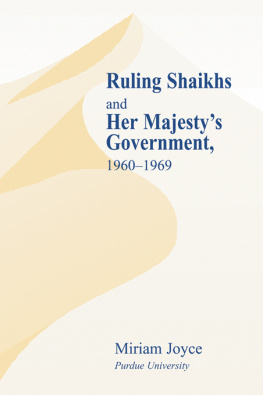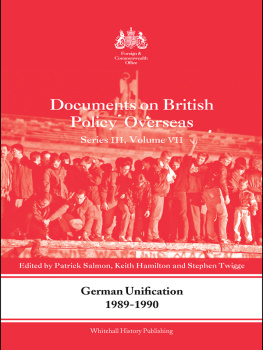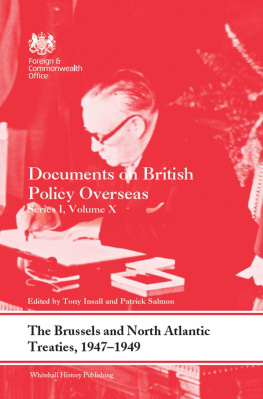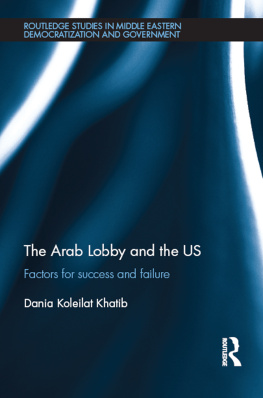RULING SHAIKHS and HER MAJESTYS GOVERNMENT 19601969
RULING SHAIKHS and HER MAJESTYS GOVERNMENT 19601969
MIRIAM JOYCE
Purdue University, Calumet
Foreword by
Sir Donald Hawley
First published in 2003 in Great Britain by
FRANK CASS PUBLISHERS
Crown House, 47 Chase Side, Southgate
London N14 5BP
and in the United States of America by
FRANK CASS PUBLISHERS
c/o ISBS, 5824 N.E.Hassalo Street
Portland, Oregon, 972133644
Website: www.frankcass.com
This edition published in the Taylor & Francis e-Library, 2005.
To purchase your own copy of this or any of Taylor & Francis or Routledges collection of thousands of eBooks please go to www.eBookstore.tandf.co.uk.
Copyright 2003 Miriam Joyce
British Library Cataloguing in Publication Data
Joyce, Miriam
Ruling Shaikhs and Her Majestys Government 19601969
1. Great BritainForeign relationsPersian Gulf States
2. Great BritainForeign relations19451964 3. Great BritainForeign relations19641979 4. Persian Gulf StatesForeign relationsGreat Britain
I. Title
327.41053609046
ISBN 0-203-49932-8 Master e-book ISBN
ISBN 0-203-58198-9 (Adobe eReader Format)
ISBN 0-7146-5413-2 (Print Edition)
Library of Congress Cataloging-in-Publication Data
Joyce, Miriam Ruling Shaikhs and Her Majestys Government 19601969/Miriam, Joyce.
p. cm.
Includes bibliographical references (p.) and index.
ISBN 0-7146-5413-2 (cloth)
1. Persian Gulf States-Relations-Great Britain 2. Great Britain-Relations-Persian Gulf States. I. Title.
DS247.A138J69 2003
327.09536-dc21
2002041496
All rights reserved. No part of this publication may be reproduced, stored in or introduced into a retrieval system or transmitted in any form or by any means, electronic, mechanical, photocopying, recording or otherwise, without the prior written permission of the publisher of this book.
In honor of my granddaughter Lily Eva and her parents Adam and Judy Haron
Contents
Maps
Between pages xii and xvii
Foreword
Miriam Joyce has chosen to write about a crucial period in Gulf history. The political scene in the Gulf of the 1960s was beginning to become more complex. It was still dominated by Britain, the old Protecting Power, which continued to develop its relations based on early 19th century treaties with the Shaikhdomsand with the Sultanate of Muscat and Oman albeit in a different way as it was never formally Protected. There was no pressure from the Rulers and their governments for any major changes in their longstanding relationships.
Increasing oil finds and revenues, however, gave the Gulf states an importance they previously lacked and rapidly changed their peoples standard of living and of modern sophistication. Two different centres of Arab nationalism, Cairo and Baghdad, competed for influence, with the Egypt of Gemal Abdel Nasser in the ascendant. As the decade advanced, Arab revolutionary movements particularly those based in Aden and south Yemen and supported in various degrees by Baghdad, China, East Germany and the Soviet Union sought to shake the essential stability of the Gulf. The Peoples Front for the Liberation of Oman and the Arabian Gulf even stated their purpose in their title. The very name of the Gulf became a contentious issue and the strongest power in the area, Iran, confident under the Shah and retentive of the historically established title of Persian Gulfsought closer bilateral relations with the Arab states of the southern Gulf based on longstanding custom and propinquity. An announcement by the British Government in January 1968 dramatically changed the picture. Britain was to abandon the former bipartisan policy of direct military support for the Shaikhdoms and also, at the end of 1971, to end the Treaties of Protection as part of a strategic decision to withdraw from all military commitments East of Suez. This sudden change of policy came as a deep shock to the Rulers and Sultan and was the more unwelcome and unexpected as only two months earlier British Ministers had assured them that, despite her withdrawal from Aden, Britain would continue to fulfil her treaty obligations to them.
This was the second fundamental decision by a Labour Government to accelerate events and reduce Britains responsibilities overseas, the first example having been India immediately after the 19391945 war. The reasons for the 1968 declaration which was incidentally as unpopular at the time with Malaysia and Singapore as it was with Gulf Rulerswere stated to be economic. It is perhaps ironical, therefore, that at the moment of writing, the present Labour Government is preparing for fresh involvement in the region in alliance with the United States.
Unsettling as it was, the announcement nonetheless certainly precipitated new thinking and, amongst such new thoughts, the concept of a possible federation of nine states, the seven Trucial States with Bahrain and Qatar, was born. In the event Bahrain and Qatar became independent states in 1971, when a federation of the seven formed the present United Arab Emirates. It was always the more logical outcome and was already being discussed seriously when I was Political Agent between 1958 and 1961, although it was not then a practical possibility.
This book shows how the United Arab Emirates actually came to be formed following an historic accord between Shaikh Zayyed bin Sultan of Abu Dhabi and Shaikh Rashid bin Said of Dubai. The modern Gulf, however, only took shape after three prominent characters, Shaikh Shakhbut bin Sultan, Ruler of Abu Dhabi, Shaikh Saqr bin Sultan of Sharjah and, later in 1970, the Sultan of Muscat and Oman, were deposed at the instigation of their families on the grounds that they would not face the realities of the modern world soon enough.
The contemporary sources drawn on by Miriam Joyce give interesting insights into these matters and many other aspects of Gulf affairs during the period, including the last years of Sultan Said bin Taimur before Sultan Qaboos took over and what others thought about his character and integrity. Valuable light is also thrown on the special case of Kuwait and its relations with Iraq and the general attitude of the United States to the region. The US are shown to have had no intention at the time of replacing Britain as policeman of the Gulf. Incidentally I had personal confirmation of this. In 1971 I became the first Ambassador accredited to Sultan Qaboos and my US colleague, who was the next to present his credentials in 1972told me that the US was happy to leave the main political running in the area to Britain as long as we had the will to be actively involved. Commercially, he added significantly we are rivals.
The Gulf Shaikhdoms and the Sultanate of Oman smoothly and successfully overcame any difficulties caused by the British withdrawal and, since then, have remained essentially stable. They have, moreover, with their traditional rulers gradually introducing more representative institutions suited to their own environments, outlasted some of the full-blown democracies of the Westminster model introduced in countries elsewhere. It remains to be seen whether the flexibility and often inventivenessof these traditionally based Arab societies may yet prove more enduring than other models advocated by the West as progressive.
Donald Hawley
Acknowledgements







